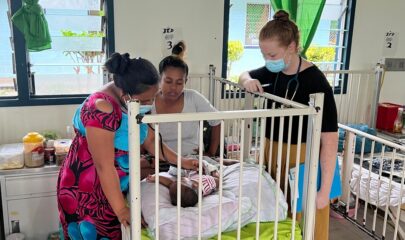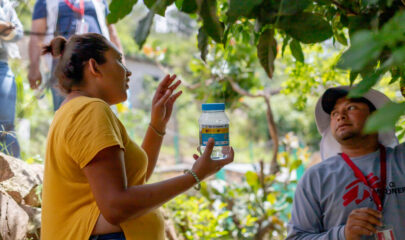Late 2020 saw a sharp increase in the number of migrants and refugees at Italy’s northern borders. They include Iranians, Afghans and North Africans who have chosen this route to avoid the detention centres in Libya and the risk of shipwreck on the Mediterranean Sea.
Many have crossed snow-covered mountains and experienced violence, pushbacks and desperate living conditions trying to reach France. The only assistance they receive at the Italian borders is from volunteer groups supported by Doctors Without Borders/ Médecins Sans Frontières (MSF).
“None of us can really imagine their suffering and the terrible things they have experienced in the course of their journeys,” says Reiner, a farmer in Bolzano, Italy.”
On the streets, along railway tracks, in abandoned buildings and on the beach: this is where migrants and refugees live in the Italian city of Ventimiglia after authorities closed the transit camp near the Roja River last July.
At the beginning of last October, severe flooding hit the city, and in the days following, 10 bodies were found, eight of which were never identified.
“They were probably people in transit who were sleeping along the river and were swept away by the water,” says Luca Daminelli, a local activist whose volunteer network distributes hot meals and clothes.
About 120 migrants were living on the street in the city of Bolzano in mid- December 2020. About 50 people were living under a bridge, surrounded by garbage, with rats running between their battered tents and with no access to clean water or toilets.
In Ventimiglia and Bolzano, MSF supports local organizations by providing sleeping bags, blankets, shoes and clothes that are distributed directly to people in transit.
Over the past three years, more than 10,000 people have crossed the Alps at Oulx, in the Upper Susa Valley, to reach France. The COVID-19 pandemic and the lockdown restrictions have decreased but not stopped the numbers of people on the move.
MSF is calling on Italian authorities to end the pushbacks of foreign citizens intercepted at the Italian-Slovenian border and to ensure police on the border with France respect people’s dignity and safety while protecting those most at risk, including unaccompanied minors. MSF further calls on Italian authorities to guarantee adequate reception conditions and access to medical care in all border areas.


